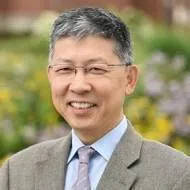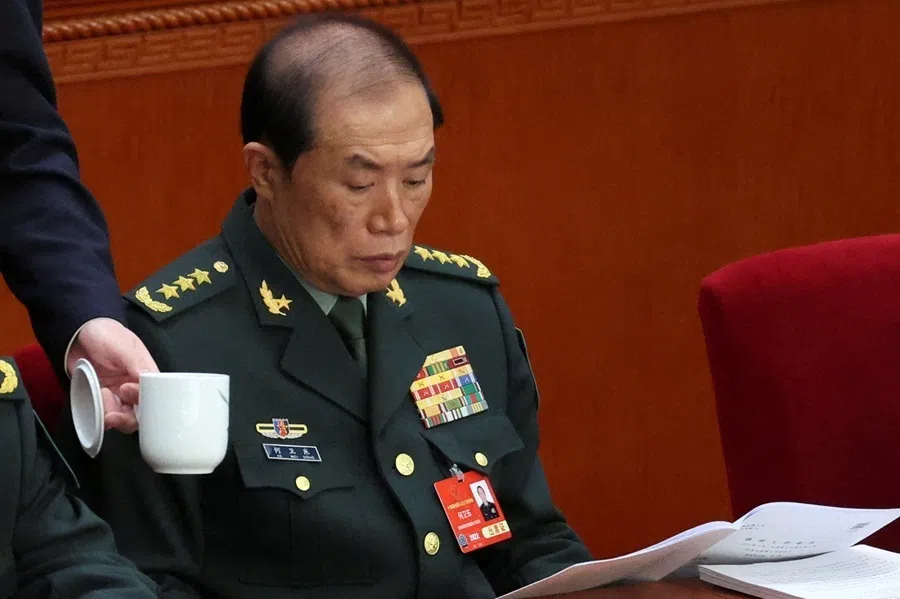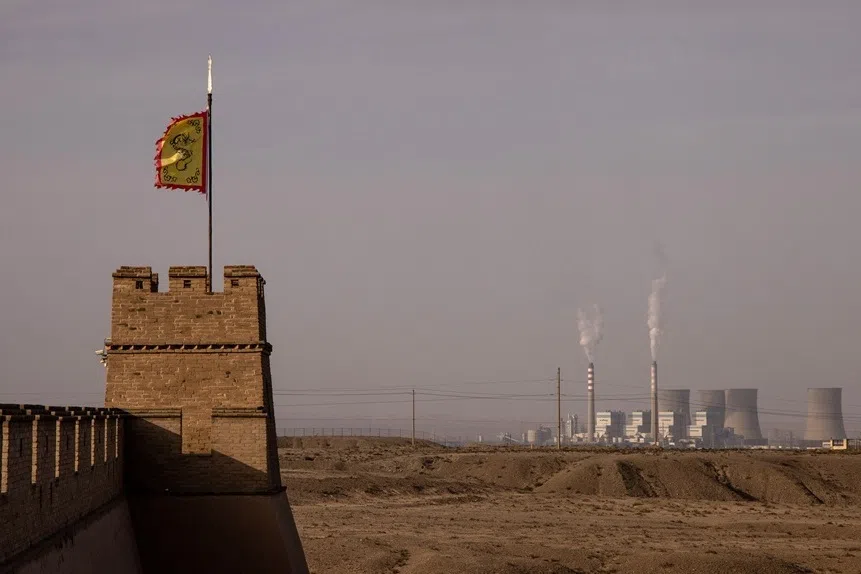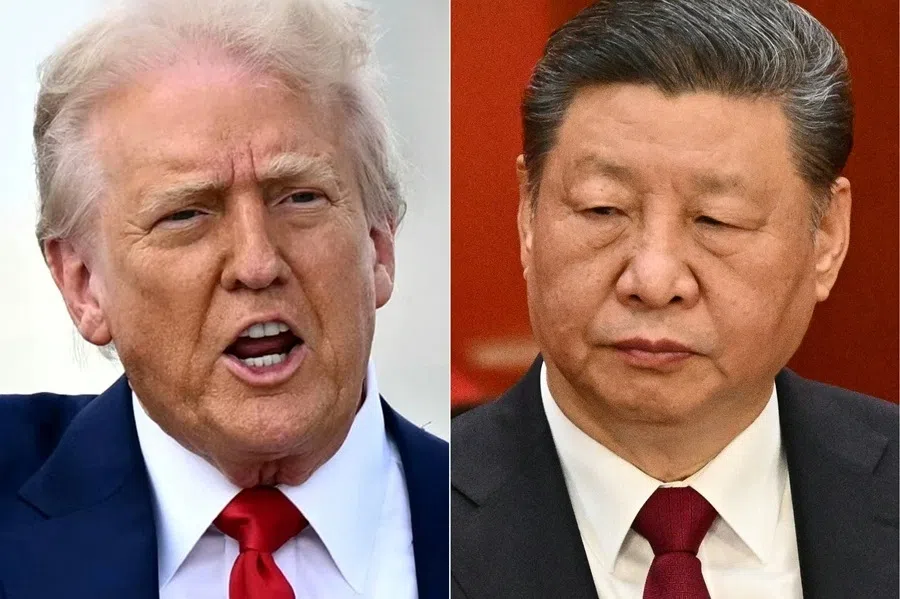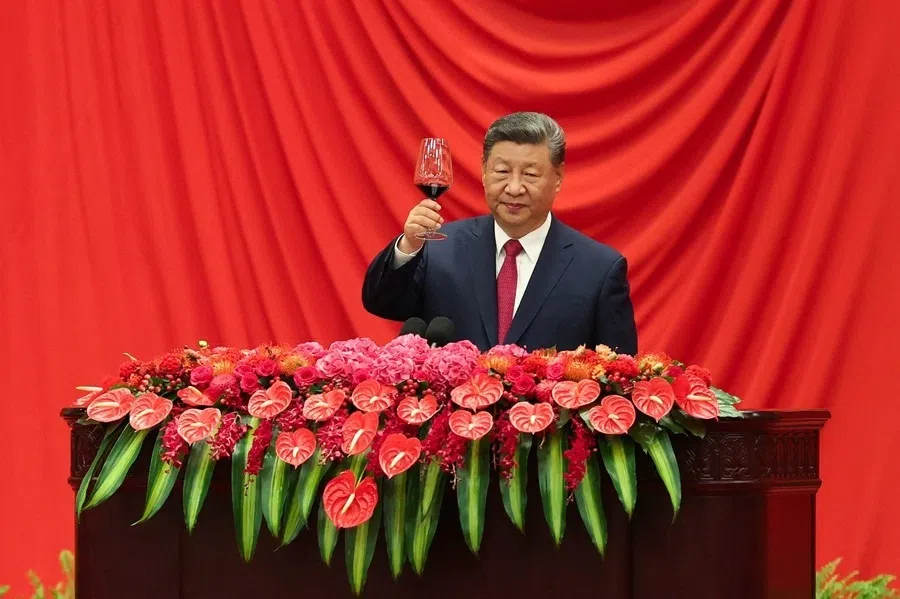A low-confidence US, an unconvincing democracy summit
In the wake of the first Summit for Democracy held online on 9-10 December, US academic Zhu Zhiqun questions the objectives and outcomes of the summit. He observes that reactions to the summit have largely been critical. The US needs to get its own house in order before it can have a deciding global influence on the debate. Otherwise, by playing up ideological differences, it is simply marking out another area in which the US and China agree to disagree.

The first online Summit for Democracy hosted by the Biden administration has ended, but many questions remain regarding the objectives and impact of the summit.
Reactions to the summit seemed to be more critical than complimentary from many corners. Supportive words were few and far between while harsh comments could be found both inside and outside the US. Some critics have labelled the summit as being polarising and divisive, "not all that democratic", and the "height of hypocrisy",
What are some of the takeaways from the summit? How will it affect US-China relations?
Domestically, Biden was trying to kill two birds with one stone: fulfill a campaign pledge and shore up his approval rating before the 2022 mid-term election.
Fulfilling an election promise
With democracy receding around the world and America's global leadership in decline under President Donald Trump, presidential candidate Joe Biden made a campaign pledge to convene a summit of democracies if elected. In a tweet he sent on 11 July 2019, Biden said, "I will invite my fellow democratic leaders to put strengthening democracy back on the global agenda. We will organize and host, during the first year of my administration, a global Summit for Democracy to renew the spirit and shared purpose of the nations of the Free World." Biden officially announced the summit schedule in his first foreign policy address in office in February 2021.
...with such dismal backing at home, Biden's credentials to rally global support for democracy are obviously limited.
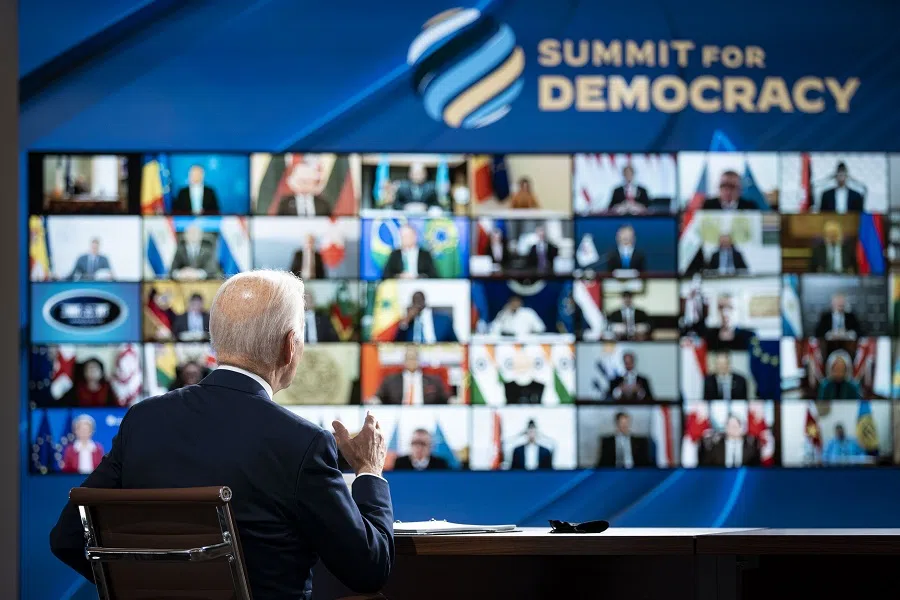
Almost one year into office, Biden's job performance has been lacklustre. With inflation going through the roof and Covid-19 cases continuing to surge, many Americans are simply exhausted, disappointed and dispirited.
A Wall Street Journal poll released right before the summit shows that only 41% of American voters surveyed approve of Biden's performance now, with 57% disapproving. His approval among undecided and independent voters was even lower, at 29% and 30% respectively.
Of course, the summit was not just for domestic consumption; Biden had global audiences in mind. However, with such dismal backing at home, Biden's credentials to rally global support for democracy are obviously limited. Democracy has become a convenient tool of the Biden administration's global strategy in fending off challenges from authoritarian regimes and in competition with China globally.
Hazy definition of democracy
The organisers never clearly defined the term "democracy" and did not explain the criteria for receiving the invitation to the summit. As expected, the invitation list did not include China and Russia, two of the "autocracies" Biden officials often refer to. Both Russia and China spoke out against the summit, saying that the US did not have the exclusive rights to define democracy, and such a summit was reminiscent of the Cold War era when the world was separated into two different ideological camps.
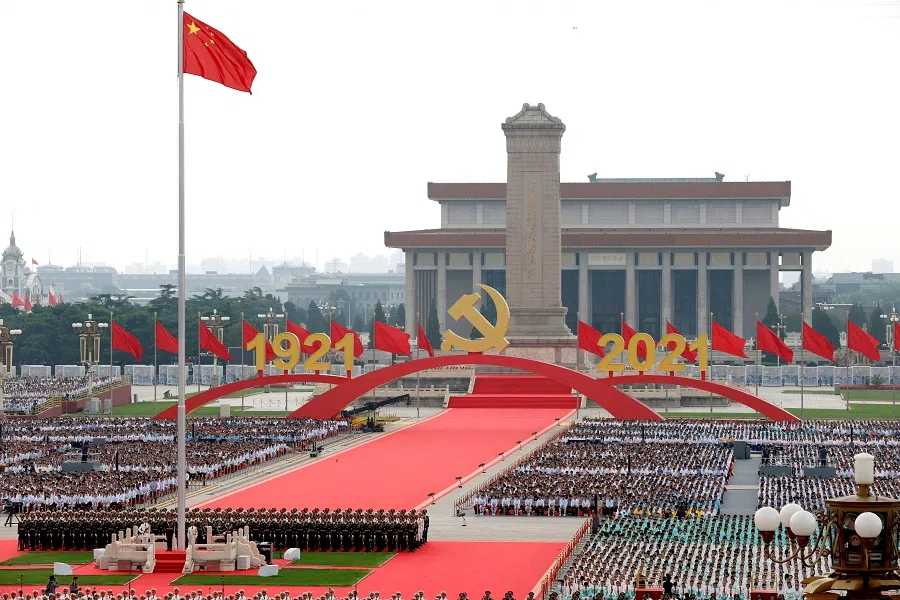
Indeed, leaders in some of the invited governments have demonstrated authoritarian tendencies. Freedom House says, for example, India's democracy is increasingly marred by the Modi government's pressure on human rights groups and journalists, limits on political and civil liberties, especially for minorities, and an increase in violence and religious strife. But Washington wanted India to play a bigger role in countering China's rise, so it turned a blind eye to Modi's infringements on democracy. Based on Freedom House scores, some of the countries invited are "not free" such as Angola, Iraq, and the Democratic Republic of Congo, while others are only "partly free" such as Albania, Colombia, India and Ukraine.
To Beijing's chagrin, Taiwan and Lithuania became darlings at this summit. Taiwan's invitation was celebrated in Taipei as a breakthrough in its global visibility and as a sign of America's staunch support. However, Taiwan's invitation further fed Beijing's fear that the US is upgrading relations with Taiwan as a card against China. Earlier, the US government also vowed publicly to assist Taiwan's participation in the UN system, clearly moving away from the "one China" policy to a de facto "one China, one Taiwan" policy.
More countries are likely to follow the US example of paying lip service to "one China" while developing substantive and official relations with Taiwan.
Paying lip service to 'one China' policy
Lithuania became the first country that allowed Taiwan to operate its supposedly unofficial representative office in Vilnius under the name "Taiwanese" instead of the customary "Taipei," causing China to downgrade its relations with the Eastern European country. Yet, Washington strongly supported Lithuania's move. More countries are likely to follow the US example of paying lip service to "one China" while developing substantive and official relations with Taiwan.
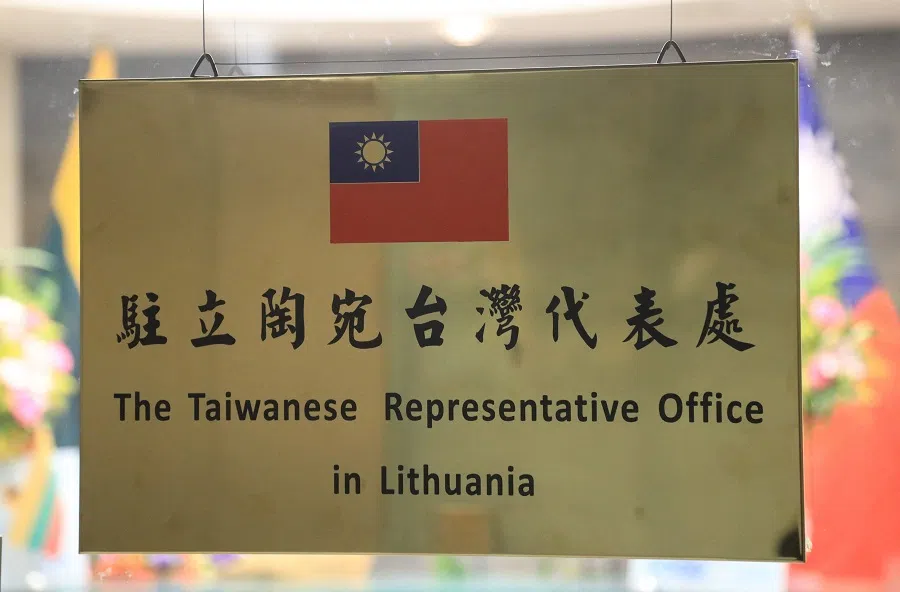
Washington is also believed to be "arm-twisting" Honduras's newly-elected president Xiomara Castro not to switch diplomatic recognition from Taipei to Beijing. Surprisingly, Honduras's neighbour Nicaragua announced on the first day of the summit that it decided to switch diplomatic relations from Taipei to Beijing, leaving Taiwan with only 14 official diplomatic allies. Some believe this act was orchestrated by China and Nicaragua as a "present" to Biden's summit.
Interestingly, China's "all-weather friend" Pakistan turned down the invitation to attend the summit just hours before it started. Hungary is the only EU country not invited to the summit. It is believed that a major reason is that Hungary, which has also been a NATO member for more than two decades, maintains close relations with both Moscow and Beijing under the leadership of Prime Minister Viktor Orban.
Singapore, a shining example of successful governance, was not invited. Singapore has been vocal about heightening tensions between the US and China and refused to take sides. Singaporean leaders have repeatedly said that Singapore would not join Biden's "Cold War-style" coalition against China. Singapore's absence probably avoided embarrassment for the host.
Domestic issues need to be solved first
Foreign policy is an extension of domestic politics. The best way to restore America's global leadership is to revitalise American society. The recently passed infrastructure bill to repair America's dilapidated infrastructure while creating more jobs is the first step in the right direction. Biden's priorities must remain countering the pandemic, reviving the stalled economy, reducing political gridlocks, reinforcing the democratic process, and protecting public safety and minority rights.

American democracy is under attack, but not by external forces. The Capitol rioting in January 2021 greatly tarnished America's image as the "beacon of hope." It is clear that America's social, economic and political problems are homegrown. "The democracy summit is an idea whose time expired on January 6, 2021," commented Jeff Moon, former US consul-general in Chengdu and assistant US trade representative for China. "Uncomfortable topics, a lack of commitments, problems with invitees and outcomes - all highlight contradictions in US policy."
Public opinions in some of America's closest allies also point to the root causes of America's problems. Even before the January 2021 Capitol rioting, most people in Germany, France and the UK had concerns about the US political system. In a fall 2020 Pew Research Center poll, 88% of Germans, 79% of British, and 78% of French surveyed said that the US political system needed changes or reform.
To consider China as an ideological or political threat to democracy demonstrates America's lack of confidence in its own system.
Adding ideological differences with China to list of disputes
Unfortunately, this summit also marked Washington's official elevation of ideological differences to an already long list of disputes between the US and China. And US-China rivalry is now permeating interactions at the bilateral, regional, and global levels.
To consider China as an ideological or political threat to democracy demonstrates America's lack of confidence in its own system. On the other hand, Chinese officials are increasingly confident in China's development path, to the point of calling it "whole-process people's democracy", a claim that probably does not resonate with ordinary people at home and is not convincing abroad. Chinese officials keep attacking America's social ills while ignoring its dynamic civil society, its deep reservoir of creativity, and its enduring soft power, all things that China should learn from.
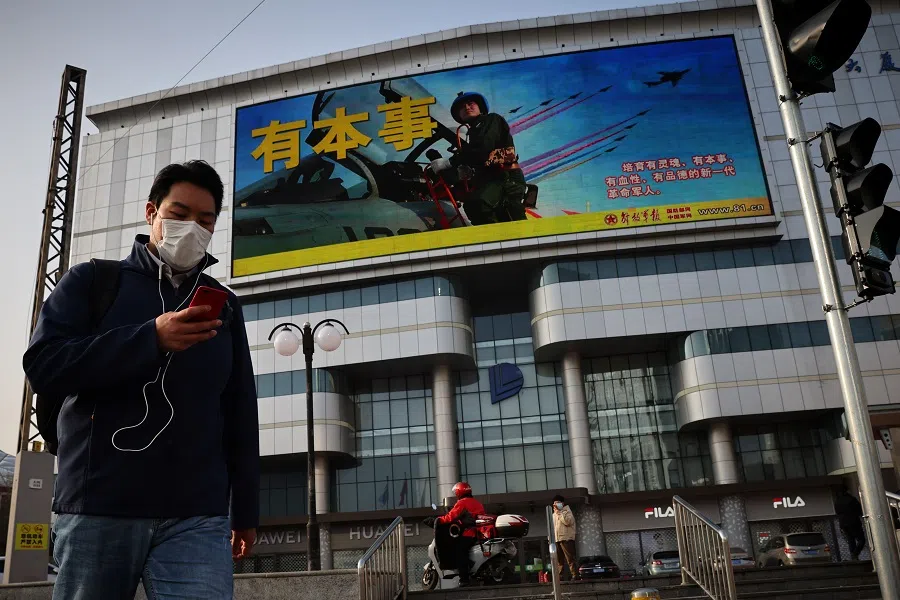
Basic principles of democracy such as liberty and human rights should be upheld by all governments. Democracy is a means to achieve the end of common good, but it is not the panacea for all the problems nations face. In practice, promoting effective governance is more important and helpful than simply championing a particular type of government.
Successfully addressing serious challenges confronting the international community such as the pandemic and climate change requires concerted global efforts. It is counterproductive to divide the international community into exclusive groups when all countries need to combat such challenges together.
It's always easier to criticise others than reflect on one's own problems. All nations including the US and China should approach each other with a sense of humility and learn to appreciate why others have been successful in certain ways.
President Biden said at the conclusion of the summit: "Let's raise up our ambitions and rise up to meet the challenges together." Hopefully this will open the door for truly global cooperation in the years ahead.
Related: Will the Summit for Democracy unite or divide the world? | Invite list for Summit for Democracy shows true calculations in American foreign policy | US democracy summit: Taipei is invited, Beijing is not included | How Beijing should respond to Lithuania's signals on Taiwan | Beijing Olympics diplomatic boycott: Does China care?
